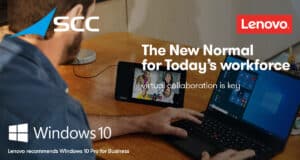Improve Security by Loosening Control
Remote working is here to stay
The makeup of today’s workforce has changed radically. While it spans some five generations, the majority of workers are digital natives, Millennials and Gen Z born from the 1980s to early 2000s.
The new generations of digital-savvy employees expect a very different work style. The workplace is now where you choose to work, not where you go to work. And for that you need technology that allows you to communicate and collaborate, seamlessly and effortlessly, wherever you want.
Make sure IT is in control
One of the key perils in remote working is the same as the office—human error. Wherever they work, your people will make mistakes. They might click something they shouldn’t, send sensitive information to the wrong person or disable protections that get in their way. Most mistakes will be unintentional, some are not. So when it
comes to securing the new global workspace, IT has to think differently
See below 4 steps to safeguard remote working:
- Ensure remote access doesn’t increase risk
- Increase endpoint protection
- Allow for inevitable human error
- Think security first
Please find details below on how to register for the following remote working webinars:
Enable Remote Working
With a shift to remote working, how can companies ensure continued collaboration and productivity? The purpose of the webinar video, is to help you enhance remote collaboration and productivity during these challenging times, and beyond.
Stay productive while working remotely with Microsoft Teams
Teams across the globe are moving to remote work. Microsoft aims to keep teams connected while they work apart by making Microsoft Teams available to as many people as possible. Teams allows you to chat, meet, call, learn, and collaborate all in one place. Sign up and start using Teams for free today, plus read on for tips for working from home.
